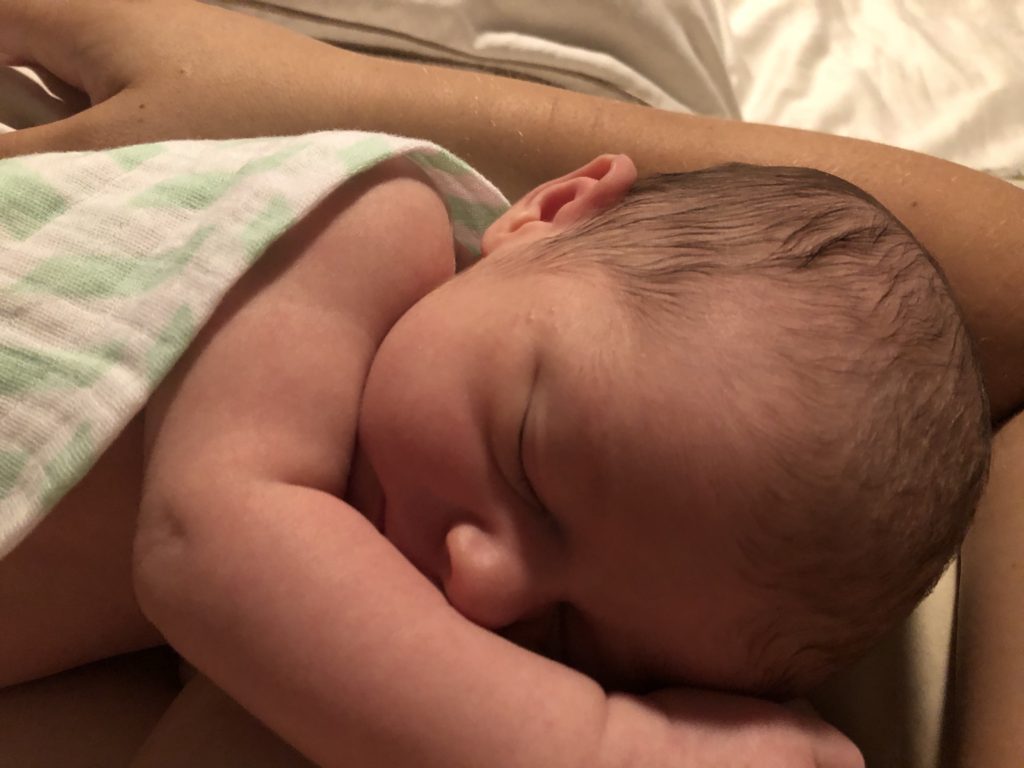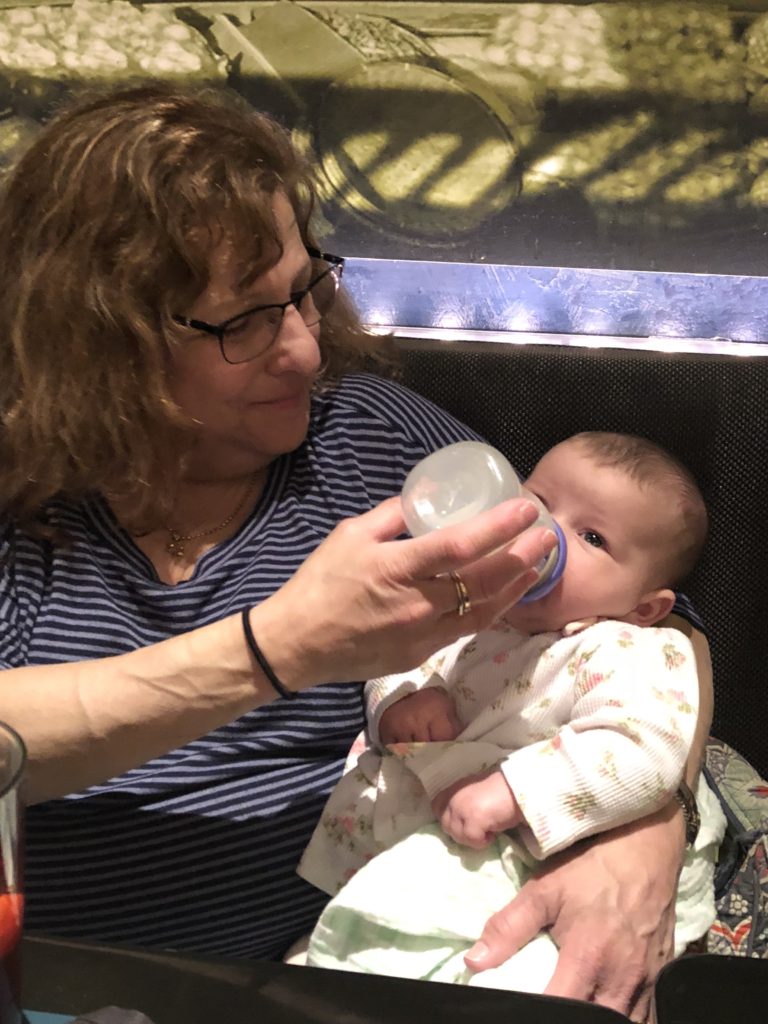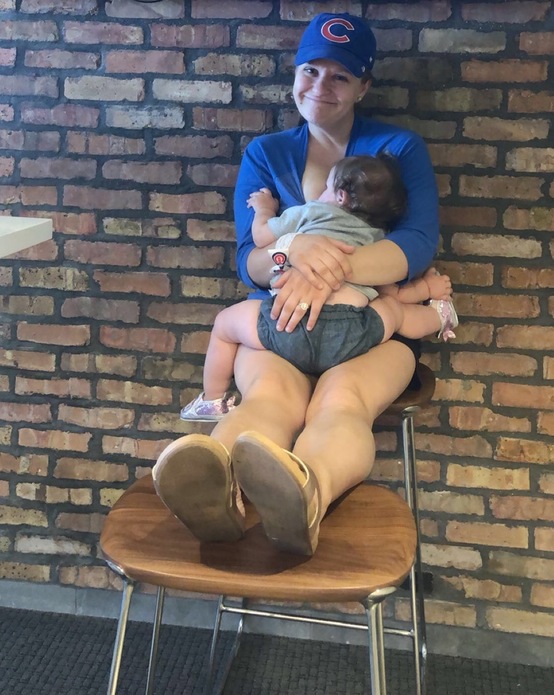Have birth preferences, not a birth plan, and remember that breastfeeding is great, but fed is best!—that’s what I recommend to all of my friends who are pregnant. Well before I became a parent myself, I’d been a clinical researcher in labor and delivery and then a registered nurse in mother/baby units, so I knew as well as anyone that on baby’s birthday, they will do whatever they want to, and that breastfeeding is beautiful, but it’s not always easy.

When I embarked on my own pregnancy journey, this was my mantra. I was even proud of myself when I calmly accepted the prolonged induction and subsequent C-section I had “preferred” to avoid. All I truly cared about was the health and safety of my baby and me, and I was incredibly lucky to have those things.
When breastfeeding didn’t go as planned, I realized the idea of “I hope to be able to breastfeed” wasn’t quite as easy for me to accept as my birth preferences going awry.
But I was surprised to find—maybe in the aftermath of this acceptance—that my postpartum preferences were harder to shake. I told myself that my preferences after birth were also just that—preferences—but it turns out that emotionally I wasn’t quite there. When breastfeeding didn’t go as planned, I realized the idea of “I hope to be able to breastfeed” wasn’t quite as easy for me to accept as my birth preferences going awry. Breastfeeding my daughter was more important to me than I had anticipated, and I was devastated when our feeding journey was challenged.

I had fallen into the trap I warned so many others not to fall into, and as a new mom, with a professional background in this arena, that made me feel even more like a failure.
I had spent a lot of my master of public health program studying breastfeeding education programs, breastfeeding statistics, breastfeeding disparities, and the not-fully-understood scientific magic of breast milk. The entire time I’ve always believed fed is best, but I also had a deep personal desire to breastfeed. But when it came down to it, all of the research I’d done, papers I’d written, education I’d had, and the incredible amount of sheer will to exclusively breastfeed was not enough to have breastfeeding come easy for us.
When formula was mentioned as an option if I could not pump enough or get her to transfer properly, I am ashamed to say I broke down in tears.
My daughter had a seemingly good latch in the hospital, but a few days after her birth, we realized she was not transferring enough milk and needed to be supplemented in some way. When formula was mentioned as an option if I could not pump enough or get her to transfer properly, I am ashamed to say I broke down in tears. Formula-supplemented and exclusively formula-fed babies thrive, and I would tell any one of my friends or patients that they should always do what is best for their baby—but that didn’t change how crushing it was to hear that my one “plan” (that I tried so hard not to count on because I “know better”) might not work out.
Ultimately, it wasn’t a question of supply: I was very fortunate that even my colostrum was plentiful, which meant that I was able to pump and supplement her with my own milk.

After months of “triple feeding” (practicing latch and trying to breastfeed, pumping, and supplementing with a bottle of pumped breast milk), as well as two multiple-hour-long lactation consultant sessions later, my daughter started transferring like a champ. So well, in fact, that she didn’t want to stop breastfeeding until she was 22 months old! I was exhausted, but relieved, that we were able to work to find an answer that extended our breastfeeding journey.
The takeaway? I’m much better at giving advice than at taking it, but I also hope to help a few parents understand that preferences are greater than/more important than a plan, and if you have resources, use them! Don’t be ashamed to ask for help, accept your limitations, and focus on the little things. Fed is best, loved is best, healthy is best.
I’m much better at giving advice than at taking it, but I also hope to help a few parents understand that preferences are greater than/more important than a plan, and if you have resources, use them!
If you want to breastfeed, take all the help you can. Ask your labor and delivery nurse, your mother/baby nurse, or the nurses’ aides, and if there are lactation consultants or breastfeeding counselors of any kind on staff ask for a consult as soon as possible. If you are able to, also prepare to consult with a lactation consultant or breastfeeding peer counselor after you’re discharged from the hospital.
Here are some easy-to-access electronic resources for breastfeeding moms:
https://kellymom.com/category/bf/
https://www.mamava.com/breastfeeding-101
And to find the closest lactation consultant to you, visit the Motherlode: https://motherfigure.com/directory.
Like this piece? Subscribe to our newsletter for real stories about women on their journey to motherhood.
